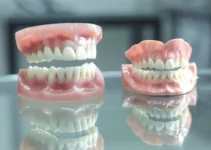Stress can significantly impact your overall health, and your oral health is no exception. When stressed, your body’s response can lead to a variety of dental issues, including gum disease and tooth decay. High stress levels increase cortisol production, which not only weakens the immune system but also heightens the risk of infection and inflammation in your gums. Furthermore, stress often leads to neglect of oral hygiene practices and increased instances of bad habits like teeth grinding (bruxism). In this article, we explore how stress specifically affects your oral health and provide insights into preventive measures and effective management strategies.
The Connection Between Stress and Oral Health
Stress is an unavoidable aspect of modern life, and its effects on physical health are well-documented. However, its impact on oral health often goes unnoticed. Chronic stress can lead to a range of dental problems, some of which can have long-term consequences. Understanding the link between stress and oral health is critical for maintaining a healthy mouth and overall well-being.
When the body is under stress, it produces a variety of hormones, such as cortisol, that can affect oral health. These hormones can lead to behaviors and physical responses that are detrimental to the health of the teeth and gums. By recognizing these connections, individuals can take steps to mitigate the negative effects of stress on their oral health.
In this article, we will explore the relationship between stress and three significant oral health issues: bruxism (teeth grinding), gum disease, and the direct impact of cortisol on oral health. Knowing these connections can help you take proactive measures to protect your smile.
Stress and Bruxism (Teeth Grinding)
Bruxism, or teeth grinding, is a common response to stress. It often occurs unconsciously, usually during sleep, and can have severe consequences for your oral health. One of the primary reasons for bruxism is the body’s response to stress and anxiety. The pressure exerted by grinding teeth can lead to tooth wear, fractures, and even tooth loss if left untreated.
Individuals experiencing high levels of stress might also notice an increase in jaw pain, headaches, and muscle soreness in the neck and shoulders. Regular grinding can cause temporomandibular joint (TMJ) disorders, which affect the joints and muscles responsible for jaw movement. Managing stress through relaxation techniques and other methods can significantly reduce the occurrence of bruxism.
To combat bruxism, dentists often recommend the use of mouthguards during sleep. Mouthguards act as a protective barrier between the upper and lower teeth, preventing damage caused by grinding. Additionally, stress management strategies such as mindfulness, meditation, and exercise can help alleviate the underlying causes of bruxism.
Stress and Gum Disease
Stress has also been linked to an increased risk of gum disease. When the body is under stress, its immune system is compromised, making it more difficult to combat infections and inflammation. This weakened immune response can lead to gum diseases like gingivitis and periodontitis.
Chronic stress can also lead to poor oral hygiene habits. People under stress might neglect routine dental care such as brushing and flossing or make unhealthy dietary choices, all of which can exacerbate gum disease. Moreover, stress can increase the production of plaque, which is a breeding ground for harmful bacteria. Maintaining good oral hygiene practices becomes even more crucial during periods of stress. Regular brushing and flossing, combined with professional dental cleanings, can help mitigate the impacts of stress on gum health. Incorporating a balanced diet rich in vitamins and minerals can also strengthen gum tissue and improve overall oral health.
The Impact of Cortisol on Oral Health
Cortisol, popularly known as the “stress hormone,” plays a significant role in the body’s response to stress. Elevated levels of cortisol can have detrimental effects on oral health. One of the ways in which cortisol affects oral health is by reducing the production of saliva, a critical component in maintaining a healthy mouth. Saliva helps neutralize acids produced by bacteria, washes away food particles, and provides disease-fighting substances throughout the mouth.
When cortisol levels remain high over a prolonged period, the reduction in saliva can lead to dry mouth (xerostomia). A dry mouth creates an ideal environment for harmful bacteria to thrive, increasing the risk of tooth decay and gum disease. Additionally, a decrease in saliva can make it more difficult to chew, swallow, and taste food, leading to further dietary and health issues.
High cortisol levels can also lead to other stress-related habits, such as smoking and overconsumption of alcohol, which further compromise oral health. Both smoking and alcohol use are known risk factors for gum disease, tooth decay, and oral cancer. Managing cortisol levels through stress reduction techniques, such as deep breathing exercises and adequate sleep, is essential for safeguarding oral health.
Understanding the impact of cortisol on oral health emphasizes the need for a holistic approach to managing stress. By addressing both mental and physical aspects of stress, individuals can protect their oral health and overall well-being. For additional information on managing stress and its effects on dental health, consider exploring our other articles on this topic.
Symptoms of Dental Issues Caused by Stress
Stress is an increasingly common experience in our daily lives, and it can have a profound impact on our overall health, including our dental health. Recognizing the symptoms of dental issues caused by stress is crucial for early intervention and effective treatment. These manifestations can range from mild discomfort to severe dental complications.
Understanding the connection between stress and dental problems can help individuals seek timely dental care and stress management strategies. Among the most frequent symptoms are jaw pain, headaches, receding gums, and tooth sensitivity, all of which can significantly affect one’s quality of life.
By becoming aware of these symptoms, you can take proactive steps to reduce your stress levels and consult with a dental professional for appropriate treatment. Early detection and intervention are key to preventing more serious dental health issues.
Jaw Pain and Headaches
Jaw pain and headaches are common symptoms of stress-related dental problems. When you’re stressed, you might clench your jaw or grind your teeth, a condition known as bruxism. Bruxism often occurs unconsciously, especially during sleep, and can lead to significant discomfort and dental damage.
Jaw pain can result from the excessive pressure on the muscles and joints in the jaw, known as the temporomandibular joints (TMJ). This can cause TMJ disorders, leading to further pain and dysfunction in the jaw. The pain can radiate from the jaw to the head, causing tension headaches and even migraines.
Frequent headaches, particularly in the temples or around the jawline, may be a sign that stress is affecting your dental health. If you notice persistent pain, it’s important to see a dentist who can diagnose the issue and recommend treatments such as night guards or stress management techniques.
Receding Gums and Tooth Sensitivity
Stress can also contribute to receding gums, a condition where the gum tissue surrounding the teeth pulls back, exposing more of the tooth or its root. This can make your teeth appear longer and lead to increased sensitivity. Receding gums can also create pockets where bacteria can build up, potentially leading to gum disease.
Tooth sensitivity, which presents as a sharp pain when consuming hot, cold, sweet, or acidic foods, can be exacerbated by gum recession. The exposed roots of the teeth are more prone to sensitivity because they lack the protective enamel that covers the crowns of the teeth.
Common causes of gum recession include aggressive brushing, poor oral hygiene, and genetic predisposition. Stress-induced behaviors like clenching or grinding teeth can worsen this condition. If you are experiencing sensitive teeth or receding gums, it’s important to visit your dentist for an evaluation and to discuss ways to manage your stress and oral health.
Recognizing these symptoms and their connection to stress can help you take control of your oral health. If you found this information helpful, be sure to explore our other articles on dental health and stress management techniques to further enhance your well-being.
Tips to Manage Stress for Better Oral Health
Stress is an unavoidable part of life, but managing your stress levels is crucial for maintaining not only mental and physical health but also oral health. Elevated stress can lead to poor oral habits, exacerbate existing dental conditions, and even cause new oral health issues. Understanding how to manage stress can, therefore, be a significant factor in keeping your mouth healthy.
Stress has been linked to several oral health problems, including bruxism (teeth grinding), xerostomia (dry mouth), and gingivitis. By effectively managing stress, you can decrease your risk for these conditions and maintain a bright, healthy smile. In this article, we will delve into various tips and techniques to help you manage stress for better oral health.
Practice Good Oral Hygiene
One of the simplest yet most effective ways to counteract the negative impact of stress on your oral health is to maintain a consistent oral hygiene routine. Stress can sometimes lead to neglect of personal care routines, which can exacerbate oral health problems.
Make sure you’re brushing your teeth at least twice a day with a fluoride toothpaste, flossing daily, and using an antibacterial mouthwash. These steps are fundamental in preventing issues such as cavities, gum disease, and bad breath. A good oral hygiene routine not only keeps your mouth healthy but can also provide a structured, calming activity that combats stress. It’s also essential to visit your dentist regularly for check-ups and cleanings. Regular dental visits can catch problems early before they become more severe and harder to treat. Your dentist can also provide personalized advice on managing stress-related oral health issues.
Adopt Relaxation Techniques
Stress management techniques can significantly improve your overall well-being, including your oral health. Mindfulness practices, such as meditation and yoga, have been shown to reduce stress levels effectively. These practices teach you to stay present in the moment, reducing anxiety and stress that may lead to poor oral health habits like grinding your teeth.
Deep breathing exercises are another excellent relaxation technique that can help manage stress. Spend a few minutes each day focusing on your breath. Inhale deeply through your nose, hold for a few seconds, and then exhale slowly through your mouth. This practice can help lower your heart rate and reduce stress levels.
Incorporating regular physical exercise into your routine is another effective way to combat stress. Exercise releases endorphins, which are natural stress relievers. Engaging in physical activities you enjoy can provide a break from daily stressors and promote overall health, including oral health.
Seek Professional Help
If your stress levels are affecting your oral health despite your best efforts, it might be time to seek professional help. A mental health professional can provide strategies and tools to better manage your stress. Therapy or counseling can help you understand the root causes of your stress and develop effective coping mechanisms.
For those experiencing severe stress-related oral health issues like bruxism, a dental professional can offer specialized treatments. Night guards can be custom-made to protect your teeth from grinding during sleep. Your dentist may also recommend stress management techniques or refer you to a specialist.
Don’t hesitate to talk to your healthcare providers about your stress and how it’s impacting your oral health. Holistic approaches that involve both dental and mental health professionals can provide a comprehensive treatment plan tailored to your needs.
Managing stress is an ongoing process, but taking proactive steps can significantly improve your oral health and overall well-being. By practicing good oral hygiene, adopting relaxation techniques, and seeking professional help when needed, you can mitigate the adverse effects of stress on your mouth.
Interested in learning more about how to maintain optimal oral health? Be sure to check out our other articles on dental care techniques, the latest advancements in oral health treatments, and more.
Common Questions About Stress and Oral Health
Understanding the impact of stress on oral health is crucial in maintaining both dental and overall wellness. Here’s a frequently asked question to help clarify this connection.
How does stress impact the health of my teeth and gums?
Stress can significantly affect your oral health in several ways. High stress levels are known to lead to increased tooth grinding or bruxism, which can cause tooth wear, fractures, and jaw pain. Stress also impacts your immune system, making it harder to fight off infections like gum disease. Additionally, under stress, people might neglect their oral hygiene or indulge in unhealthy habits like smoking and consuming sugary foods, which further deteriorate oral health.

My name is Salman Kapa, a 73-year-old expert in bone regeneration and dental implantology. With decades of experience in the field, I am dedicated to advancing our understanding of oral health and hygiene. Through my research and writing, I aim to contribute to the development of innovative solutions in dental care.




